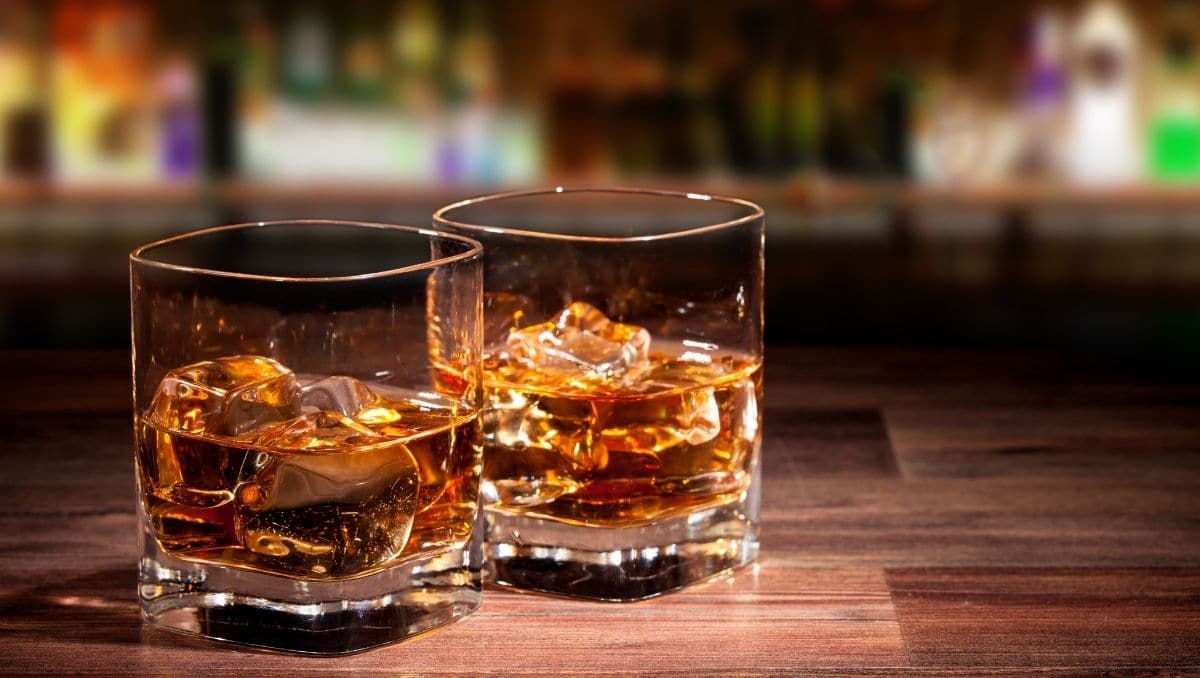The selection of non-alcoholic whiskey is getting bigger each year. That also accounts for other no-alcohol spirits, but it feels like the situation with whiskey is different. The reviews online are more emotional, and the critiques are harsher.
Many bloggers, reviewers, and spirits experts claim these bottles are too sweet, have too much caramel, are too expensive, and simply are no real whiskey alternative. The unanimous verdict: there's no worthy non-alcoholic whiskey alternative doing the trick.
The truth is, that the category of alcohol-free spirit is still young. Brands have come a long way in the past few years, and the products improved a lot. But it's also true that brands still have a long way ahead to create products that adequately substitute alcoholic drinks.
In this expert guide, we will answer your questions and shed some light on non-alcoholic whiskey. We answer all the common questions like: What is a non-alcoholic whiskey? How does it taste? How is it made? And which non-alcoholic whiskey is best for making classic cocktail recipes without alcohol?
Taste | What is it? | How it is made | What is it Made of? | Is it 100% alcohol-free | Is it worth it? | Popular brands
What Does Non-Alcoholic Whiskey Taste Like?
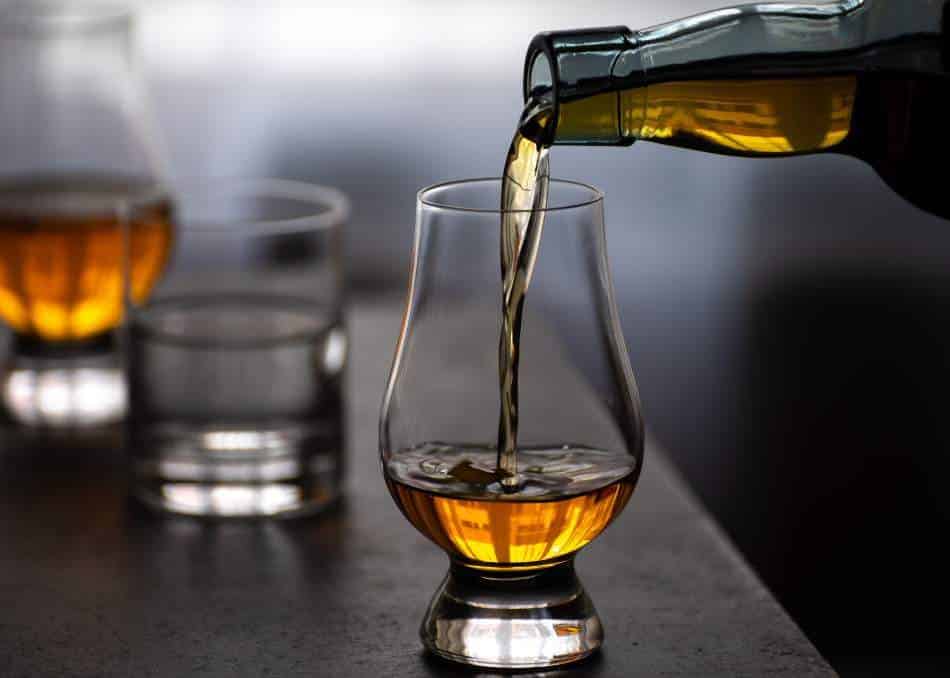
In General, non-alcoholic whiskey has a sweet taste, often with distinct caramel and vanilla flavors. Some brands also impart additional flavors to replicate specific whiskey types, like spice (rye) and smoke (Scotch). The main problem with whiskey alternatives is that they lack texture, which makes the mouthfeel way different from real whiskey. Alcohol gives texture to drinks, and until today, there's no way to replicate it.
A regular whiskey contains at least 40% alcohol, and as ethanol has a lower boiling point and lighter density than water, it feels and behaves very differently.
In general, these non-alcoholic drinks are not meant for sipping. Despite all efforts, the taste is not even close to real whiskey, except when using it with other ingredients.
What is Alcohol-Free Whiskey?
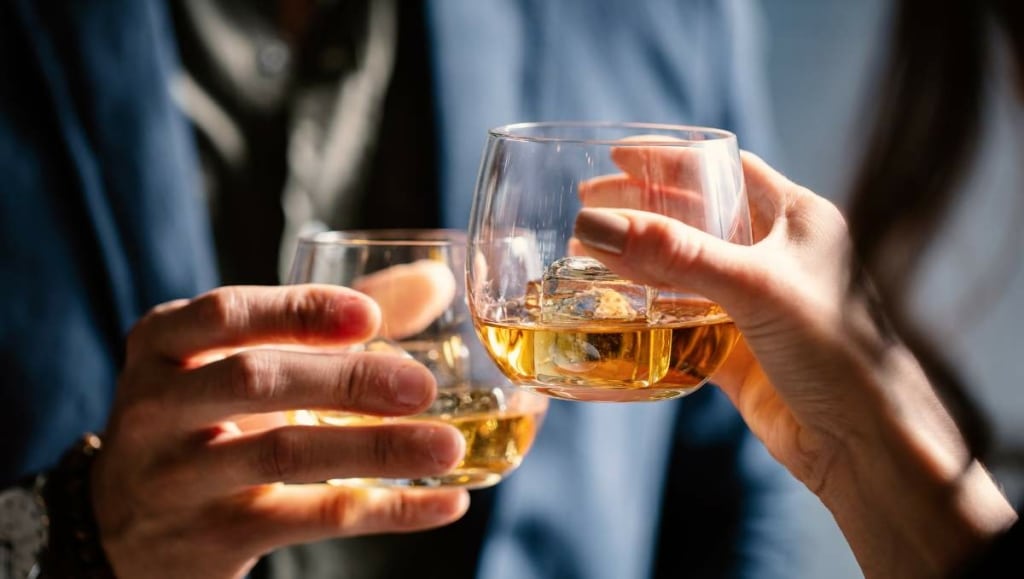
Non-alcoholic whiskey is an alternative to regular, alcoholic whiskey made entirely without alcohol. The beverage is ideal for people who can't, or don't want to, drink alcohol and is an excellent ingredient for Mocktails. However, the substitute is not meant for sipping, as the taste is too far off.
No alcohol whiskey comes in various colors, tastes, and styles that try to mimic specific types of whiskey, such as rye, bourbon, or scotch. It can be used in alcohol-free versions of classic whiskey cocktails like an Old Fashioned by replacing bourbon as the base and using non-alcoholic bitters instead of classic Angostura bitters.
How is it Made?
There are two different ways of making non-alcoholic whiskey. The first one uses only natural ingredients and follows the traditional way of making an alcoholic whiskey, but removes the alcohol using a reverse distillation process. The reverse distillation process removes all alcohol from a whiskey while keeping the flavors.
The second way is a lab approach where producers blend various ingredients, aromas, and other additives to achieve a product that resembles whiskey.
What is Non-Alcoholic Whiskey Made of?
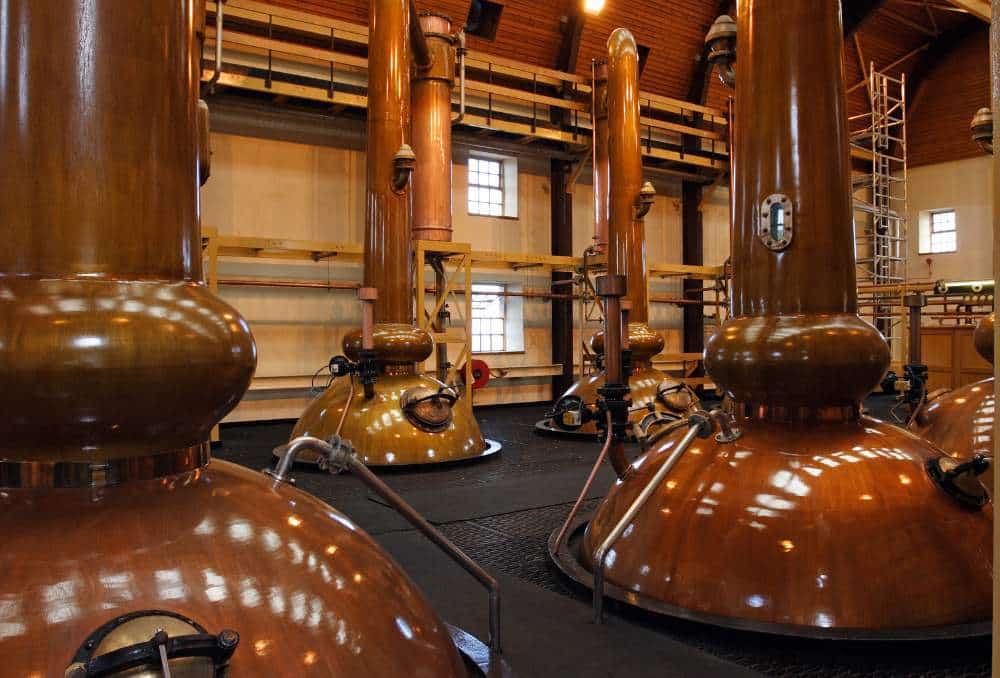
Depending on how a specific product is made, the ingredients may vary. All of them are based on filtered or spring water, natural flavors, Potassium Sorbate, and Sodium Benzoate. Potassium sorbate is a common preservative found in many drinks and foods, while Sodium Benzoate is added due to the lack of alcohol. It inhibits the growth of bacteria, yeasts, and molds, making the non-alcoholic alternatives shelf-stable.
Especially lab-produced products will contain various flavor extracts, citric acid, several juices, caramel, and other natural colorings to obtain the desired taste and color.
Is it Really 100% Alcohol-Free?
It depends on the production process, but all non-alcoholic whiskeys contain 0.5% alcohol or less. With the conventional way of removing alcohol from a distillate, traces of alcohol will remain in the end product.
The same applies to alcohol-free beer or sometimes even fruit juices. Because legally, you can label any product alcohol-free once it has below 0.5% ABV.
If you look at manufacturers making imitations of conventional Whiskey, you will find many who developed 100% ethanol-free products. These innovative alcohol alternatives only mimic the characteristics of Whiskey, like texture, complexity, smell, and flavor profile. In turn, they are able to produce without a single drop of alcohol.
Is Non-Alcoholic Whiskey Worth it?
If you can not, or don't want to, drink alcohol, these alcohol-free alternatives are very much worth it. Especially when consuming them in combination with other ingredients, like ginger ale, soda water, and lemon juice.
Seasoned whiskey drinkers looking for an occasional alcohol-free dram, won't be satisfied. The flavors do not come close to the real deal, and the price is too high considering you can drink any alcoholic whiskey instead.
Due to its molecular structure, alcohol has distinct characteristics in terms of flavor and texture. You cannot achieve these when leaving it off. At least, that's the status quo. The future might prove otherwise.
But saying that, drinking it in mocktails is a great alternative to boozy cocktails. It will get some of the known whiskey flavors through, plus you have an adult drink without the side effects of alcohol.
Best Non-Alcoholic Whiskey
The trend of non-alcoholic whiskey started in the mid-2010s with Arkay and Seedlip, and since then, become a product category of its own. These no alcohol spirits, just like alcohol-free gin, tequila, and other products, can be seen everywhere.
Two of the big players with a massive marketing machine behind them are Lyre's and Ritual Zero Proof Whiskey alternative. They have been on the market since 2019/2020 and quickly became well-known non-alcoholic spirit brands.
Here is a quick overview of the best no alcohol whiskeys you can get at the moment:
1. Lyre's American Malt
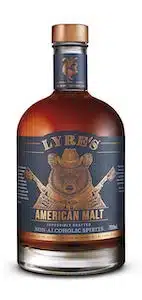
Lyre's American Malt is a non-alcoholic spirit that aims to replicate the flavors of traditional American malt whiskey. It offers a flavor profile characterized by sweet brown sugar, caramel, cherry, raisin, and subtle woodiness, ending with a light peppery finish.
This beverage is low in calories, with just 64 calories per serving, and has an ABV of 0.0%. While it might not capture the depth of traditional whiskey, it can be used in low-abv cocktails or alcohol-free Mocktails. Lyre's also produces an alternative to Scotch called Lyre’s Highland Malt.
2. Spirit of Bourbon
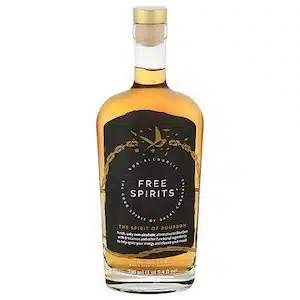
The Spirit Of Bourbon is a non-alcoholic alternative crafted by the Free Spirits Company. Using Distillate Reconstruction, it replicates bourbon flavor without the alcohol. It can be enjoyed neat, on the rocks, or in mixed drinks.
The aroma combines brown sugar, vanilla, and butterscotch notes. Neat, the drink offers a mellow taste with hints of oak, malt, and molasses. When served with ice, it becomes spicier but loses some flavor. However, we recommend using it in mocktails like alcohol-free Whiskey Sour.
3. Spiritless Kentucky 74
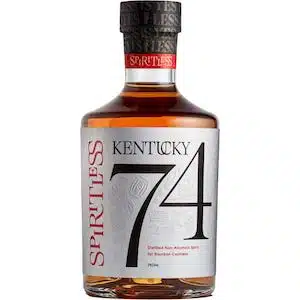
Spiritless Kentucky 47 is a unique non-alcoholic bourbon. Unlike many other alcohol-free spirits, it starts with a real high-proof spirit, mixed with oak chips and staves to mimic the barrel aging process. They then use a "reverse distillation" method to remove almost all the alcohol while preserving the flavors.
It looks and smells like bourbon, with a deep amber color and oaky aromas. The taste, however, surprises with tangy citrus notes, ginger, oak, and hints of cherry and warm spices. It works beautifully in cocktails, especially in an Old Fashioned or a whiskey-based mule, offering a rich and complex flavor profile. While not recommended neat, it's a fantastic choice for mixing delightful alcohol-free drinks to wake up the next day without a hangover.
4. Gnista Barreled Oak
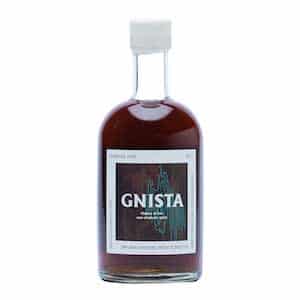
Swedish company Gnista made a delicious non-alcoholic drink that tastes like bourbon but without the alcohol. It's called Barreled Oak.
The aroma of sweet wood mixed with earthy stuff is quite pleasant. When you take a sip, you get smoky, woody flavors with a bit of sweetness and a bit of bitterness, like chocolate, raisins, and spices.
This drink is not for rushing; it's for enjoying slowly. You can drink it straight, on ice, or mixed with club soda for a grown-up fizzy drink.
5. Monday Zero Alcohol Whiskey
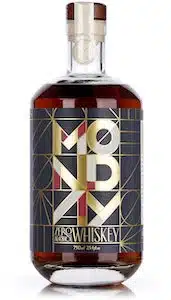
Monday whiskey is produced in small batches in sunny Southern California. In the realm of non-alcoholic spirits, Drink Monday stands out with its commitment to crafting all-natural, zero-calorie, and zero-sugar alternatives. Their "whiskey" offers a unique tasting experience, featuring notes of dark chocolate, zesty lemon, and cayenne-like spices.
While it doesn't perfectly mimic traditional whiskey, it shines as a standalone product for crafting mocktails. Plus, Monday takes pride in being keto, vegan, and containing no gluten in their products.
For more recommendations, look at our list of the top non-alcoholic bourbon whiskeys to try.

